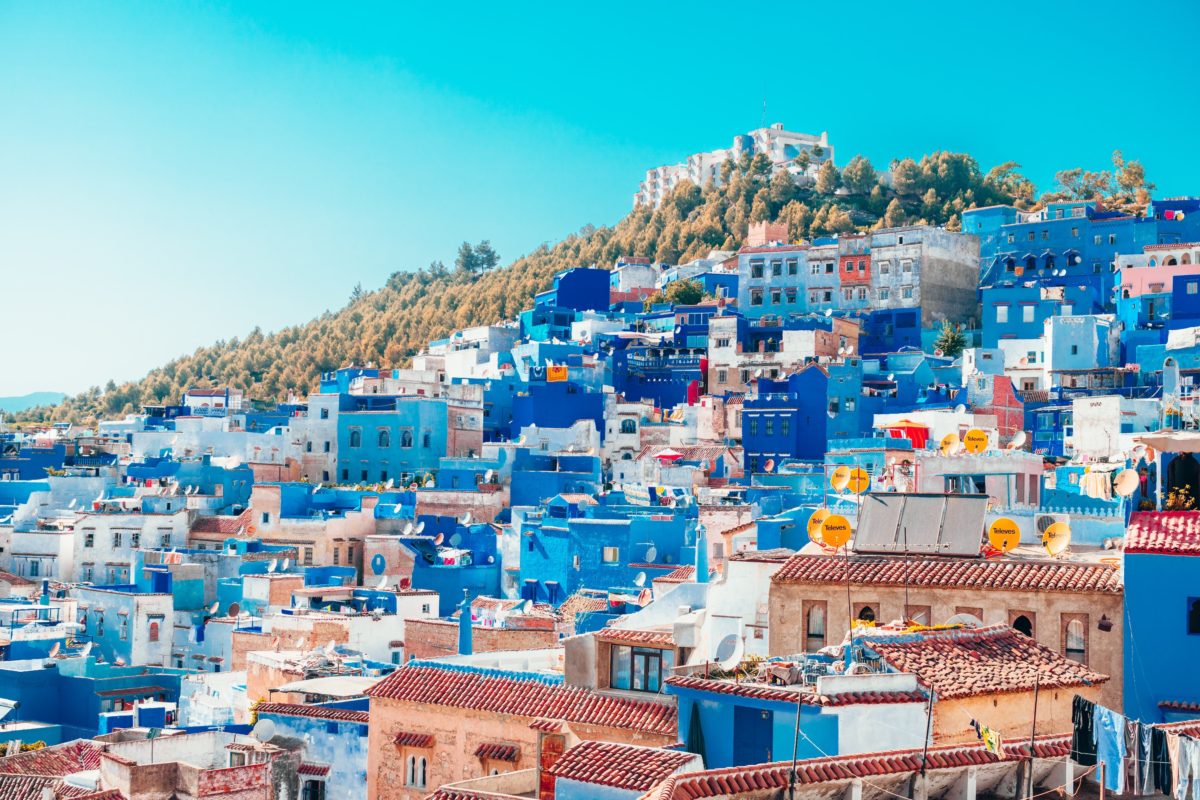A Guide to Moroccan Arabic

There is a heated debate among Arabic speakers about Moroccan Arabic, or as it is known in Morocco, "darija", that it is not a “true” Arabic dialect, but rather a variant of North African and European languages. Despite its complexity, Moroccan Arabic is at its core just like the other main Arabic dialects. Besides its Arabic roots, darija also has influences from African and European languages like Spanish and French.
History
Morocco has been the home of the Berbers since the second millennium B.C. In A.D. 46, Morocco was annexed by Rome as part of the province of Mauritania until the Vandals overran this portion of the declining empire in the 5th century. The Arabs invaded circa 685, bringing Islam. The Berbers joined them in invading Spain in 711, but then they revolted against the Arabs, resenting their treatment as second class citizens. In 1086, Berbers took control of large areas of Moorish Spain until they were expelled in the 13th century.
The land was never truly unified and was usually ruled by small tribal states. Conflicts between Berbers and Arabs were constant. Portugal and Spain began invading Morocco, which helped to unify the land in defense against a common enemy. In 1660, Morocco came under the control of the Alawite dynasty. It is a sherif dynasty—descended from the prophet Muhammad (allegedly)—and rules Morocco to this day.
Variation Within Moroccan Arabic
The questions begs itself: what is Moroccan Arabic?
Moroccan Arabic Consists of three main variants: Northern (الشمالية), Eastern (الشرقية), and Western (السوسية). These variants are often influenced by whichever culture tends to dominate the area. That being said, French is pretty popular in the central region. Oftentimes, you will see French words used instead of their Arabic counterparts. But in the north, Spanish is the dominating second language.
Some Moroccan words are also derived from French (such as [Toubiis] from [l’autobus] for bus), Spanish ([zapaat] from [zapatos] for shoes), or Tamazight ([khiizou] from [xizzo] for carrot).
Pronunciation
Here are some of most-common differences in pronunciation between MSA (Standard Arabic) and Darija (Moroccan Arabic) letters: (from left to right)
ث is pronounced like ت
ذ is pronounced like د
ط ظ and ض are pronounced like ط
Moroccan Arabic also includes two extra letters: ݣ for “g” and ݒ for “p”.
Moroccan Arabic is renowned for its incomprehensibility and difficulty to the rest of the Arab world. You would be surprised at how many jokes are made about how Moroccan Arabic sounds like gibberish to the middle eastern people.
The language tends to mush consonants together by removing short vowels within words. This produces a snappy, staccato form of Arabic that takes some time to adjust to. Darija words are rendered by putting a (sukkun) over the first letter of most words and emphasizing the second syllable. This is especially the case with اسم فاعل nouns:
مْعلّم (maallem) = teacher
مْدَگدَگ (mdegdeg) = exhausted
In these cases, the (miim - م) in the beginning of the word sounds more like a humming that leads into the next consonant.
Grammar
Possessive Pronouns
One of the most unique words to Moroccan Arabic is (ديال - dyaal). This word carries the possessive pronoun instead of the noun. The following shows how the pronouns attach themselves to this word:
- Our = ديالنا (dyaalnaa)
- Your = ديالكم (dyaalkum)
- Their = ديالهم (dyaalhum)
- My = ديالي (dyaalii)
- Your (male & female) = ديالك (dyaalek)
- He works (male) = دياله (dyaalou)
- She works (female) = ديالها (dyaalhaa)
Demonstrative Pronouns/Adjectives
Pronouns:
هدا (hada) = this (male)
هدي (hadii) = this (female)
هدو (hadou) = these
هداك (hadak) = that (male)
هديك (hadiik) = that (female)
هدوك (hadouk) = those
Adjectives:
هد (had) = this/these (male & female)
داك (daak) = that (male)
ديك (diik) = that (female)
دوك (douk) = those
Interrogative Particles
شكون (shkoun) = who
شنو/أش/أشنو (shnou/ash/ashnou) = what
فوقاش (fouqash) = when
فاين/فين (fain/fiin) = where
علاش (alaash) = why
كيفاش (kifash) = how
Numbers
All of the numbers are the same in Moroccan Arabic except for two and nine:
جوج (jouj) = two
تسعود (ts’oud) = nine
Cheat Sheet
Here are some basic Moroccan Arabic phrases and words that you can use to start a basic conversation:
How are you? = لاباس (labas)
Good = مزيان (mezyan)
Ok (affirmative to a command) = وخا (wakha)
What’s up? = كداير(ة)؟ (kdair[a])
Who are you? (Female) = شكون نتي؟ (shkoun nti)
Who are you? (Male) = شكون نتا؟ (shkoun nta)
What’s your name? = شنو سميتك؟ (shnou smiitak)
My name is… = سميتي (smiitii)
Where are you from? = منين نتا؟ (mniin nta)
Where are you going? = فين ماشي؟ (fiin mashi)
Straight = نيشان (niishaan)
To the right = ليمين (liimiin)
To the left = ليسير (liyssar)
Quickly! = دغية (dghiya)
What time is it? = شحال الوقت؟ (shHal lwaqt)
About nine o'clock. = مع التسعود (maa tts’oud)
(At) what time? = فوقاش؟ (fawqash)
Now. = دابا (daabaa)
Later. = من بعد (men baad)
How much is this? = بشحال هادا؟ (bishHal hada)
What do you want? = شنو بغيتي؟ (shnou bghiitii)
I want… = بغيت (bghiit)
Please! = (‘afaak) عفاك
Do you like…? = كتبغي؟ (katbghii)
I like = كنبغي (kanbghii)
Delicious. = بنين (bniin)
Very/a lot = بزاف (bzaaf)
No more, I’m full! = بركة عليا، شبعت (baraka ‘alayya, shba’t)
Excuse me. = سمح(ي) ليا (smH[ii] liyya)
Not a problem! = ما شي مشكيل (maa shii mushkiil)
Moroccan Arabic Translation Services
If you are in need of a Moroccan Arabic translator or translation services, then you've come to the right place. We have a number a specialized translators who will handle your translation and convey your message accurately in Moroccan Arabic.
Contact us to get a free quote for your project or documents!